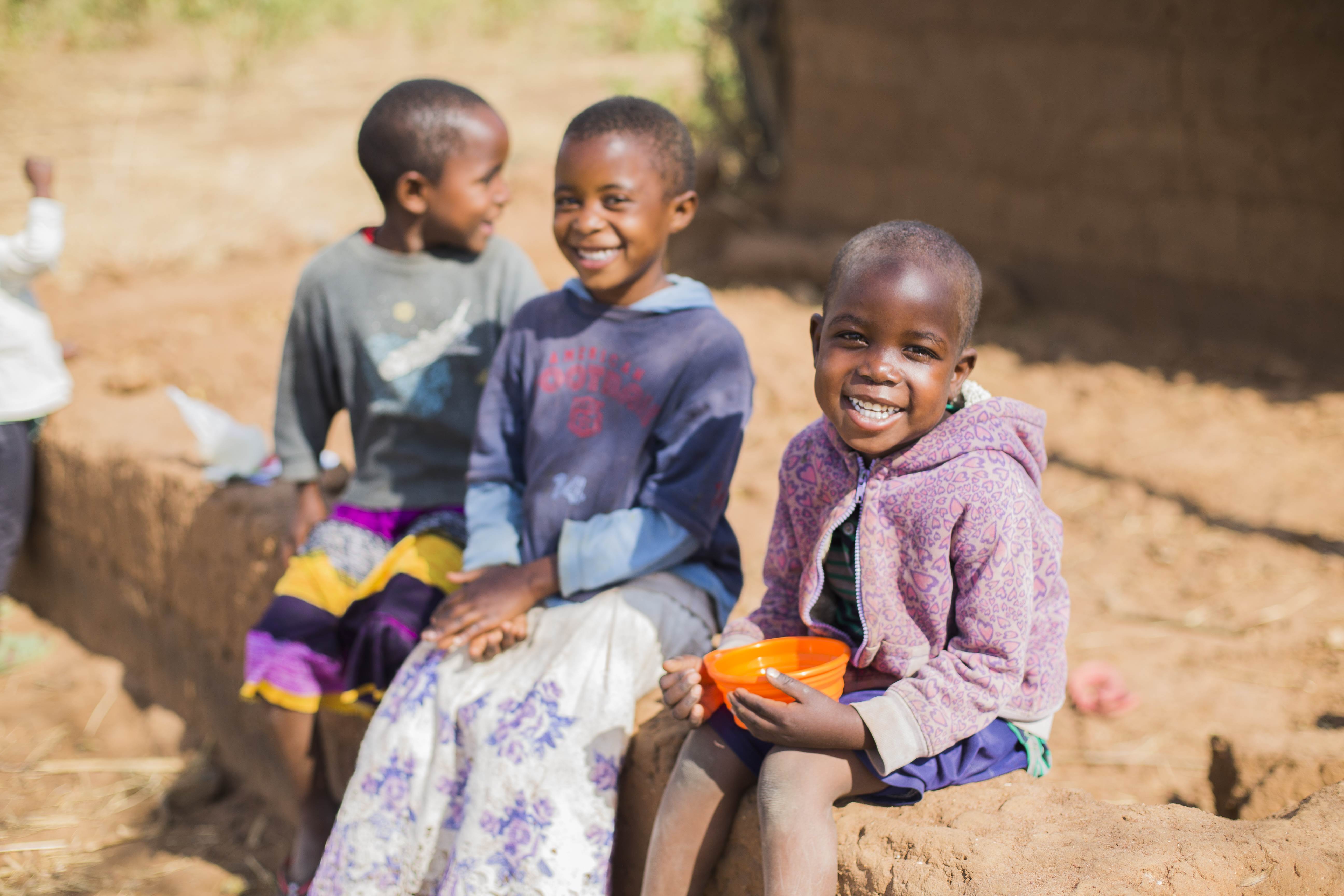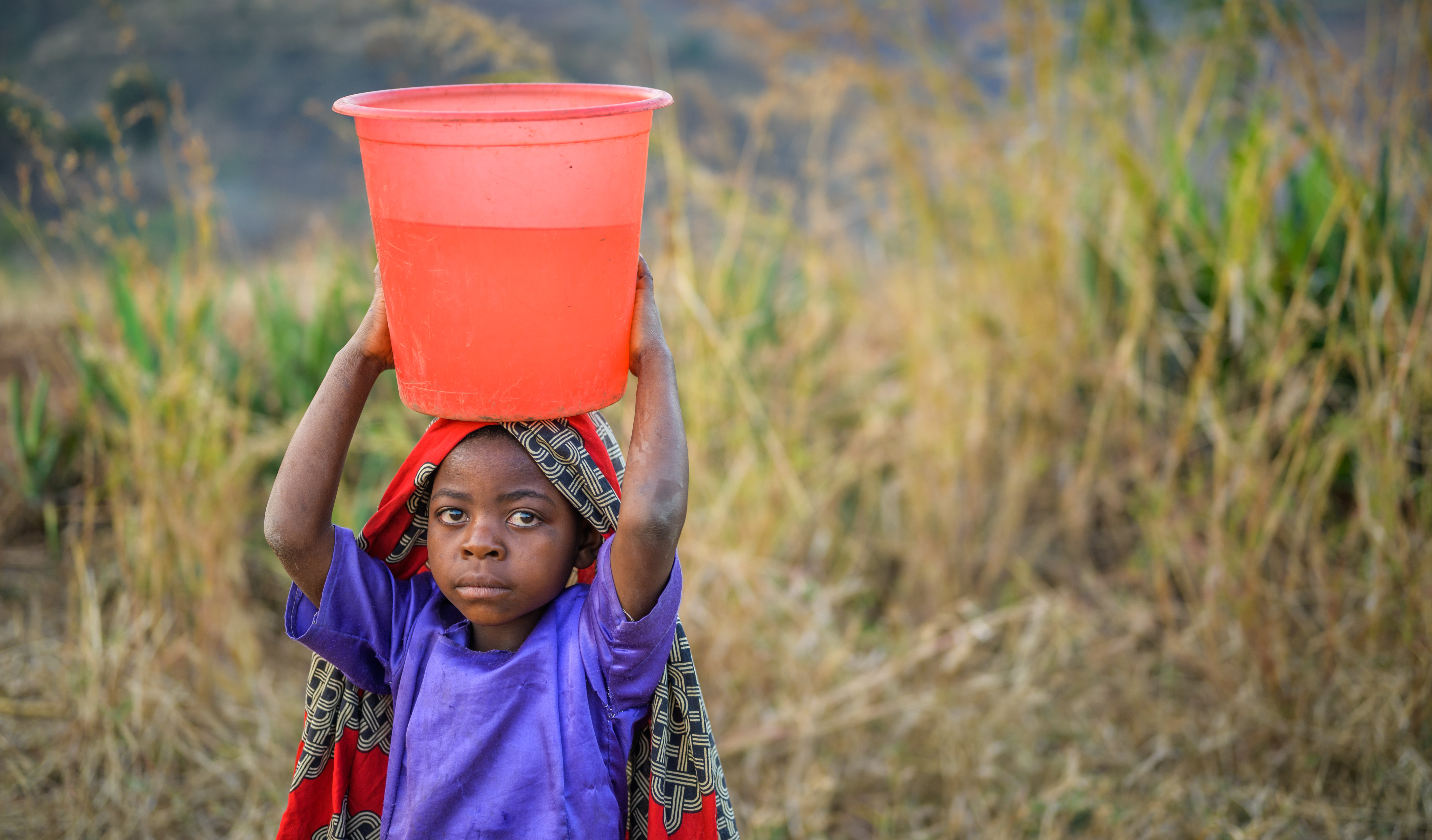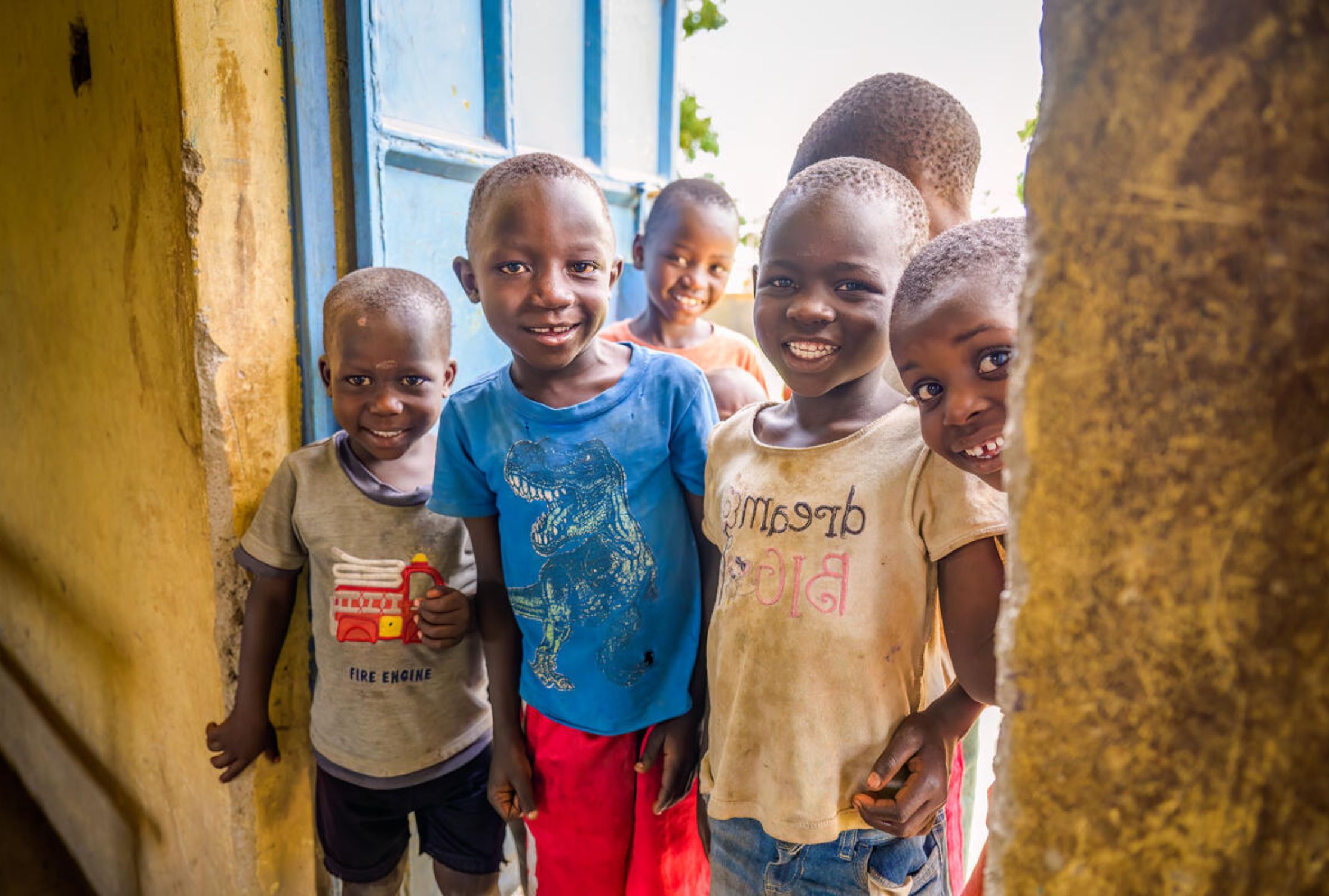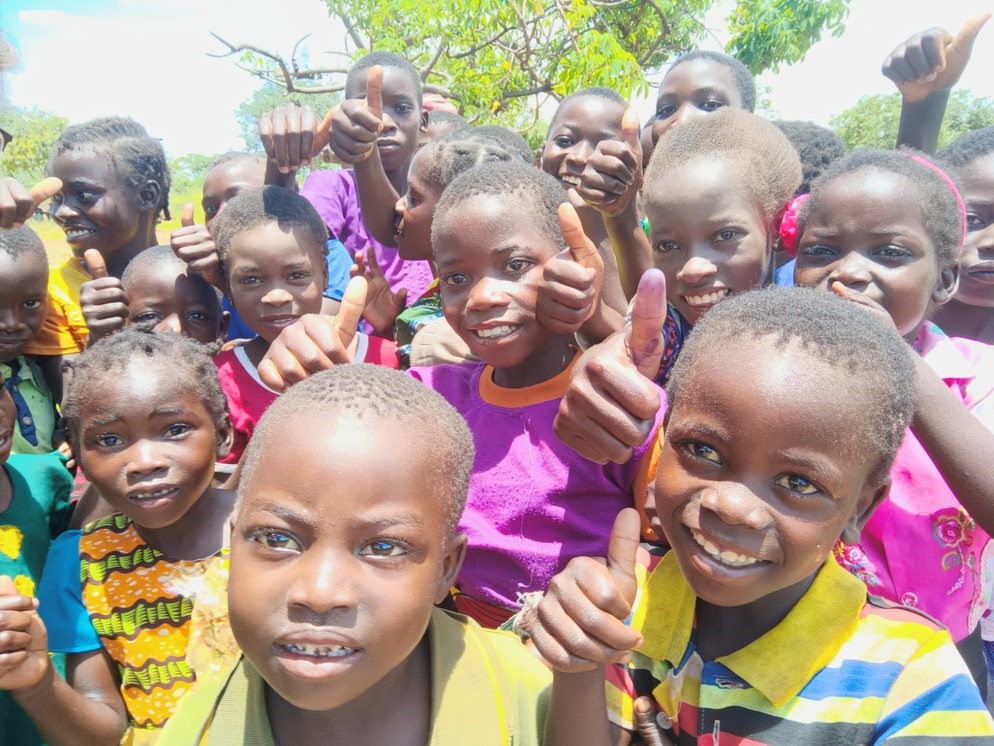
Poverty in Zambia
Please can I put it in a bag and shake it up?
Jill Gentle works for World Vision UK as Regional Portfolio Manager and has just returned from a trip to Zambia.
Day in, day out, I have the privilege of working closely with World Vision staff in Zambia, Mozambique and Malawi. In 2023, my job took me to some rainy and remote areas in the north and east of Zambia, where World Vision is implementing health, education, water and child protection projects, to name but a few.
In this job I have moments of great joy, but also of… exasperation. When I exasperated my mum at a young age, I would hear, “I want to put you in a bag and shake you up!” Such is my feeling after my first week of seeing some life-changing World Vision projects in Zambia. Pure exasperation.
Not with the generosity of the dedicated World Vision staff, who daily travel to some of the hardest-to-reach areas in rural Zambia, making a difference to thousands of households.

Neither am I exasperated with the infectious smiles of the hundreds, perhaps thousands, of children I’ve met at schools and community meetings along the way. And I’m certainly not exasperated by conversations with smiling doctors, nurses and teachers who work in the most dilapidated of conditions, stretching minimal resources.
I’m not even exasperated by the relentless 30+ hours of bumpy roads, making me feel like a lone shoe inside a huge washing machine.
So, what am I exasperated about? The poverty. I’m fully fed up with its unfairness, stubbornness and relentlessness to some of the nicest people I could ever hope to meet.
As the largest landlocked country in Southern Africa, Zambia is around three times the geographical size of the UK, but with a population three times smaller. During one car journey, I felt the vast reality of this sparsely populated and rolling landscape. I marvelled at the green hills as far as my eye could take me, seeing just a few scattered tin roofs catch the African sunlight here and there in the distance. I only saw one bus, five cars and 15 lorries during my six-hour journey.
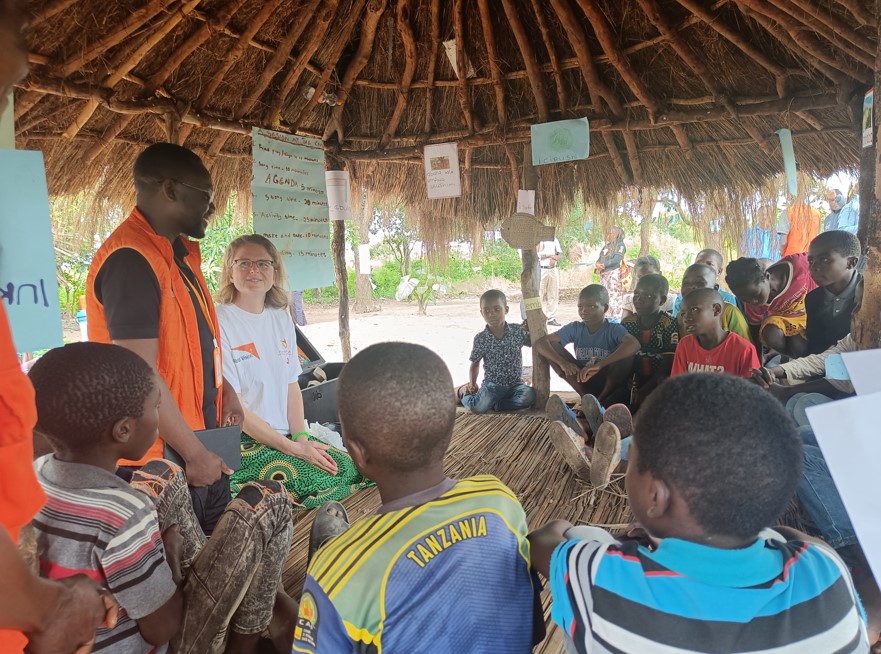
A simple tap made all the difference
World Vision began working in Zambia in 1981. Over forty years later, World Vision now employs 600 men and women, located across all ten provinces in Zambia, to implement projects which impact over 1.5 million children affected by poverty.
Back to my trip…. at my first project meeting, I was ushered into the two-room mud-brick home of Rita (37), mum of seven children between seven and 23 years old. My rough calculations tell me that she had her first child at 14 - not uncommon in this part of Zambia. Rita was born with a physical disability and cannot walk long distances easily. She also has one daughter with epilepsy and one daughter who was born with a congenital hand condition.
Before World Vision worked in the area, she told me she would walk for one hour to collect water from an unclean water source. She didn’t like to leave her children at home, especially her two children with disabilities, so she would walk the distance, leave her bucket in the queue and walk back home to tend to her children. She’d then repeat the walk to collect her full bucket later. Thanks to a partnership between World Vision and the largest water company in Zambia, Rita now has a water tap just outside her home.
New Free Education for All policy
Next, we drove to a busy school and I met Precious, a headteacher. With a nervous excitement, Precious tells me about the new Free Education For All policy recently introduced by the Government of Zambia. Showing a big smile, she explains how, since the introduction of this policy, new children are coming to school each day, but – unfortunately - resources are still needed to meet the needs of the new students.
Her school now has 885 children (growing daily), across eight classes, with a total of 70 desks in the entire school. There are over 100 children per class teacher, with one desk for around 10 children. I can tell from our conversation that she is never going to turn any child away from school and is grateful for the training and wider support offered by World Vision.
Reading Camps
My final meeting for the day is with Mary. Passionate about educating the next generation, Mary – four years ago – raised her hand to be trained by World Vision to host a Reading Camp in her front garden. Looking much less like a garden today, I walk into what feels like a playground; a lively, noisy and fun place to be. Learning educational games, lesson plans and fun sessions, Mary has been trained by World Vision to become a Reading Camp facilitator and hasn’t looked back since.
Knowing the challenges of growing up in a country with a youthful population, where a third of girls marry before the age of 18, she is convinced that these camps are a successful way to help educate children and develop their love of, and hunger for, learning.
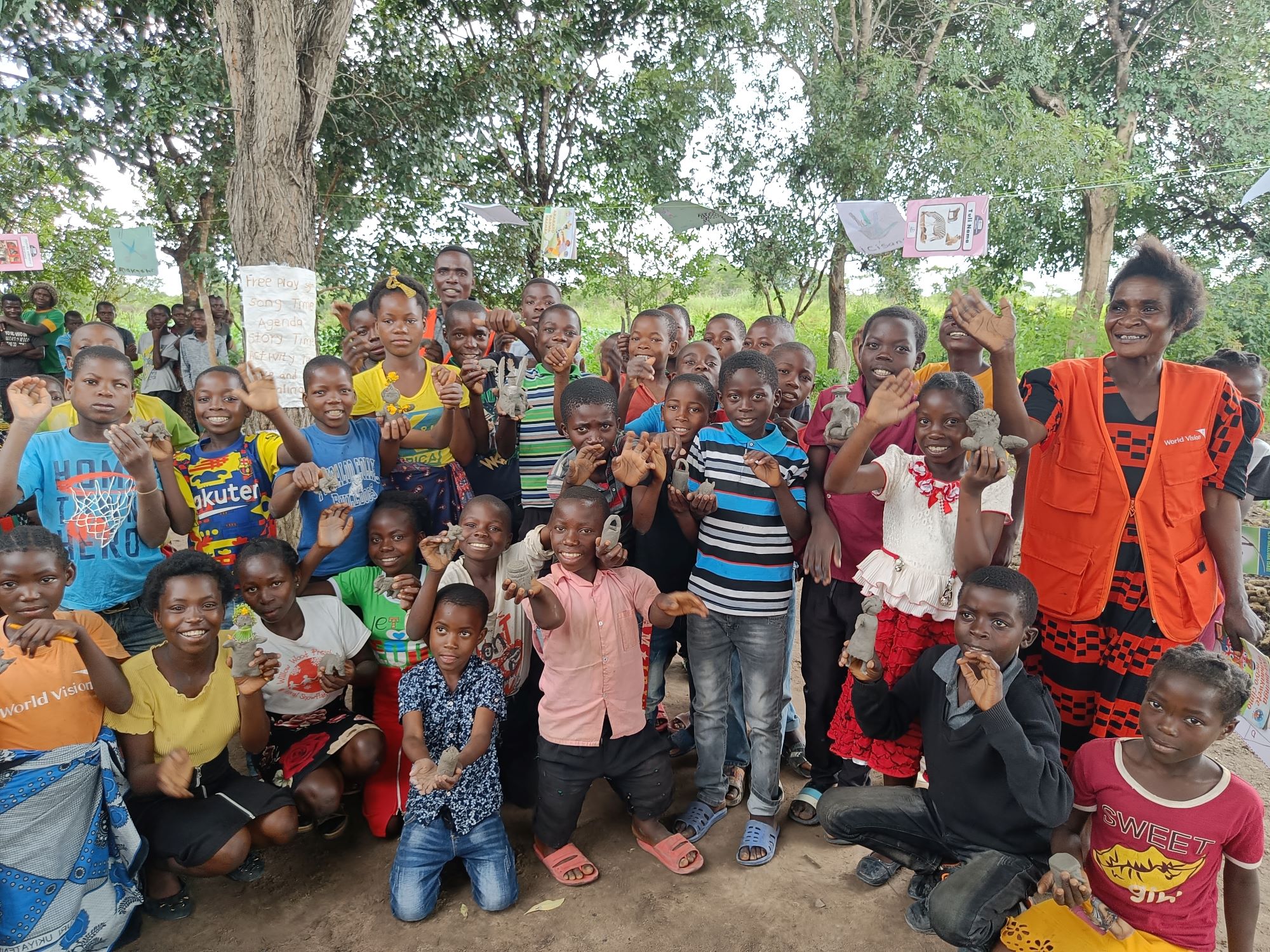
“I am so happy because I am celebrating some of my children from my Reading Camp who are now grown up and have successfully completed school. I am so grateful to World Vision who have always been there to train us, mentor us and guide us on how to instruct these Reading Camps. We can now do it on our own,” Mary explains.
The stories and the smiles are heart-warming and real. But it's unfair. Poverty is stubborn and cruel. It likes to attack, entwine and fully get a grip on people and their lives. However, I’ve seen that World Vision is making a difference - child by child, family by family, household by household.
In my first days in Zambia, I interacted with volunteers jumping for joy whilst leading reading camps under a tree, teenage girls with sky-high confidence after attending a World Vision empowerment course and an 18-year-old boy who previously used drugs and has now turned his life with new carpentry skills, thanks to World Vision. He wants to teach others to do the same.
All of the hundreds of people I’ve met have their own individual stories. Yes, poverty is stubborn, but I can show you smiles that are stronger than the grip of poverty. I have seen, first hand, how World Vision empowers people to shake lives up and shake poverty out. More than ever, I want to be a little part of it.
World Vision helps support the most vulnerable children across the world through education, water and sanitation, child protection, health and nutrition and more.
Will you join me?
Sign up to hear more about World Vision's work and how you can help vulnerable children living the harshest places.

